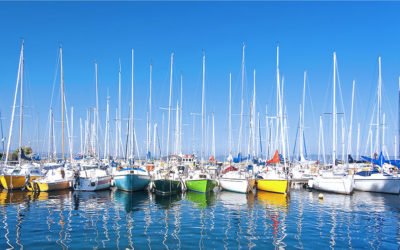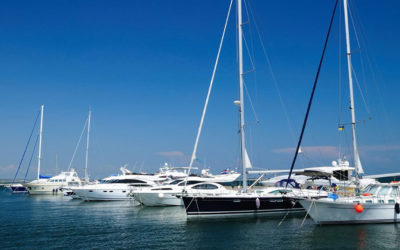Whether it is with the intention of participating in regattas or for a long crossing, you have to be patient and importantly go at your own pace. Band of Boats gives you some tips before you start!
Eric TABARLY confided that it took 30 years of experience in navigation to consider himself a yachtsman. Whether it is with the intention of participating in regattas or for a long crossing, you have to be patient and importantly go at your own pace. Learning to sail takes a long time, but what pleasure there is in being able to set sail on a cruise alone, with your children or with your friends. Band of Boats gives you some tips before you start!
1. Immerse yourself in maritime literature
French literature is rich in maritime narratives: Alain GERBAULT and Bernard de MOITESSIER are pioneers who sailed long legs solo or as part of a crew. These stories recount the joys we share at sea, but also the difficulties encountered in bad weather. Page after page, we learn the techniques used to reduce failures of their boat… what could be more essential?
2. Subscribe to specialised magazines
The sailing related press is a treasure trove of very rewarding and practical articles on learning how to sail and manoeuvre. It even devotes files to the learning of very specific subjects such as adjusting the sails, reefing to reduce sail in an emergency, recovering a man overboard…
3. Register with a sailing school
Sailing schools recognized by the FFV (Fédération Francaise de Voile) are excellent ways to learn how to sail safely. The state-certified instructors follow your pedagogical progress based on your results and your seamanship. Their advantage is that they have several types of sailboats available (light and habitable). You have to learn to control them and make them perform, whatever the weather.
4. Become a member of an association
Some associations offer sea outings. This is a great way to meet other captains who can explain the art of sailing. During these voyages, crew members exchange their maritime experience while on board. Back on the mainland, you will remember their valuable advice.
5. Rent a boat
Renting a sail boat is also a good way to learn how to navigate several bodies of water, which is very educational. Sailing on the Mediterranean is not the same as sailing in the West Indies or in Brittany. The phrase “greet the squall and round the coast” has meaning in this context. To choose a boat adapted to your needs, you can read our guide: How to choose a sailing boat?
6. Embark with an experienced crew
Skippers are always looking for a volunteer team member to help hoist the mainsail, unfurl the jib or keep watch, so why not you? Sail with different crews on small and large sailboats, monohull to trimaran, as well as on different bodies of water, all rich experiences that are also educational.
7. Enter competitions
An introduction to the regatta also helps you to progress; it teaches you to sail alone or as part of a crew, in conditions that often require a little exertion but also in the light weather.
8. Become an extreme traveller
Some tour operators offer “extreme” sailing trips, a trend that is growing: for example passing around Cape Horn from Ushuaia, or the Northwest passage (emotion guaranteed).
Band of Boats hopes that you have noted all the possibilities available to you to bring out the super sailor that lies dormant within you. Above all, keep in mind that whatever happens, you must remain master of your boat.

